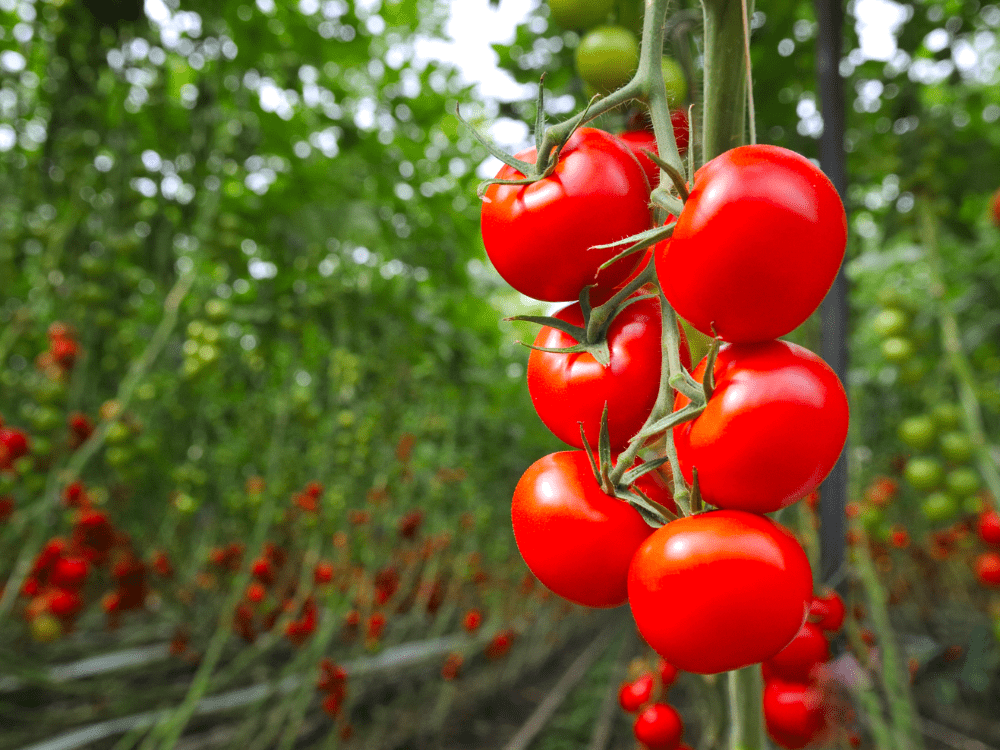With all the bad news coming from the vertical farming sector lately, it’s easy to believe the entire controlled environment agriculture (CEA) industry is headed for bust.
In reality, not every CEA company teeters on the brink of bankruptcy or closure. While the greenhouse industry isn’t immune to current market forces (see AppHarvest’s recent Chapter 11 filing), more than one positive story has come out of the CEA segment of late.
The most recent is agribusiness investment vehicle Cibus Fund II‘s recent acquisition of Duijvestijn Tomaten BV, a Dutch greenhouse company that grows tomatoes in glasshouses powered by green energy, including geothermal.
Speaking to AgFunderNews, Jason Silm, head of agriculture at Cibus Capital, said the acquisition is a first step in Cibus’ larger indoor ag strategy of building The Flavour Farm, “a pan-European platform focused on fresh produce self-sufficiency,” starting with greenhouses and glasshouses.

Geopolitical crises and consumer demand mean change
The European greenhouse industry has long relied on cheap gas to produce heat and electricity that power operations.
That’s changed in the last couple of years thanks to the war in Ukraine, which pushed energy prices in Europe up to unprecedented high levels. Record inflation and trade disruption are also impacting food production, as are the adverse impacts of climate change. Britain’s tomato shortage, which is linked to freezing temperatures and poor yields in Spain, is one recent example.
Growing parallel to these issues is European consumers’ desire to eat more sustainably. One recent study from IPSOS and Yara International notes that about half of Europe’s consumers are “willing to pay for fossil free food items, meaning food produced without fossil sources.”
Meanwhile, “A clear majority of Europeans (74%) say food companies need to work to reduce the emissions from their food production,” according to the study.
Glasshouses: ‘very sustainable when decoupled from gas’
Dutch glasshouses have existed for nearly a century, making them a more-proven indoor farming model than the much newer vertical farming industry. As a case in point, Duijvestijn has been in operation since 1963.
The company also has high production levels to go with that lengthy history. At the time of acquisition, Duijvestijn was farming nearly 25 hectares (about 60 acres) of tomatoes in glasshouses and expanding by approximately 10 hectares per year, according to Silm.
This translates to roughly 17 million kgs of tomatoes annually that Duijvestijn sells to retailers, foodservice and wholesale across Europe, including J Sainsbury and Ahold Delhaize.
Duijvestijn implemented geothermal energy more than a decade ago. Silm says about 85% of the company’s operation runs on this system supported by 2,500 solar panels and repurposed CO2 from the Dutch Shell refinery.
“We have a very good understanding of the investment returns possible from Dutch glasshouse growing, when done at scale with a high quality team,” says Silm. “Those returns fit Cibus’ targets. We also see the assets and the businesses as being very sustainable when decoupled from gas.”
A blueprint for future farms
The Duijvestijn deal is not a standalone acquisition for Cibus. Rather, it’s a first step in the launch of The Flavour Farm, Cibus’ new platform dedicated to growing food inside controlled environment agriculture (CEA) systems powered by renewable energy.
The Flavour Farm’s key goal is to build a network of farms that will decarbonize specialty vegetables and bolster Europe’s self sufficiency in food production.
Cibus will “build or acquire” CEA systems that can contribute to this goal.
“We have a pipeline for expansion already agreed with industrial manufacturers to take their waste heat and to develop a further 60 hectares in adjacent sites over the next four to five years,” says Silm. “In addition, we have three different sites under investigation with sustainable heat and energy sources within the UK; we will develop one or two of those.”
He adds that retailers Cibus works with in the UK and EU are already targeting “a rapid transition to net zero food and vegetables.”
Silm name-checks tomatoes and leafy greens as crops The Flavour Farm will start with. The latter, of course, is a key crop for vertical farming, an area Cibus previously invested in via the now-troubled AeroFarms.
Silm declined to comment on AeroFarms’ recent Chapter 11 filing or whether Cibus will continue investing in vertical farms.
As for The Flavour Farm, Silm says Cibus has “a sufficient pipeline for between four and five years of development,” adding that the strategy is not only sustainable, but “cost effective and scalable.”



